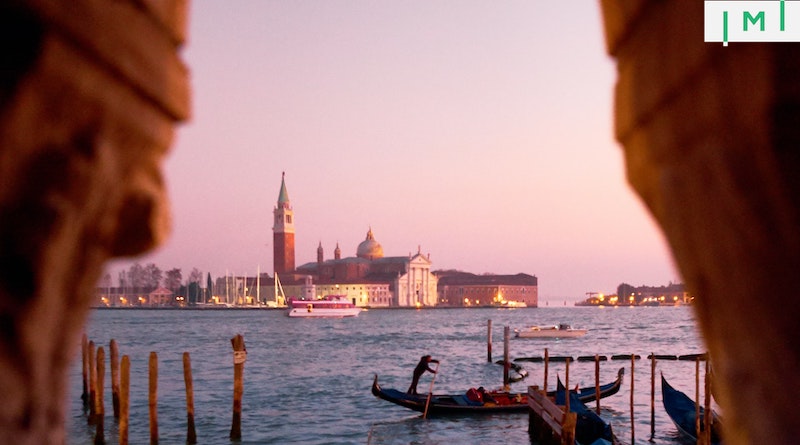Vote on Bill to Bring Real Estate Option, Lower Investment Minimums for Italy’s Dolce Visa Likely This Year
A bill first introduced in the Italian senate early last year, and which is likely to come up for a vote this year, would – if passed – bring a host of favorable changes to Italy’s “Dolce Visa” (an investor visa), including the introduction of a real estate investment option.
The bill, DDL S. 2498, introduced by the Five-Stars Movement (Movimento Cinque Stelle) senator Gabriele Lanzi in January last year has been with the 1st Standing Commission for Constitutional Affairs since March.
Pointing to the relative underperformance of Italy’s investor visa compared to its Portuguese and Greek peers, the bill’s author writes that such programs “represent one of the most efficient methods of attracting foreign direct investment in the short term as well as an excellent opportunity to grow related activities deriving from the non-occasional presence of foreign citizens in the medium-long term.”
Demand for investment migration programs in Europe, reads the bill's introductory text, is growing, a trend the experiences of the pandemic is likely to accelerate.
To strengthen the appeal of the Dolce Visa relative to competing European programs, the bill proposes a number of favorable changes, including (but not limited to) the following:
Reductions in minimum investment requirements
- Reducing the minimum investment amount for the company investment option from the current EUR 500,000 to EUR 400,000; and
- Reducing the minimum investment amount for the innovative startups investment option from the current EUR 250,000 to 200,000.
New investment options
Private savings plans: Currently, applicants may qualify for an Italian Dolce Visa by investing EUR 2 million in an Italian government bond. The submitted bill proposes to also allow for a similar investment in "private savings plans," such as retirement accounts or other pension plans.
Real estate option: In acknowledgment of the overwhelming preference for property investment options among applicants to other European golden visa programs (but also "drawing on the lessons of Portugal's experience"), the bill proposes the introduction of a real estate investment option with relatively high and tiered minimum investment requirements. Minimum investment amounts would follow the below framework:
- Properties in Italy's "metropolitan areas" (i.e., its large cities): Min. EUR 1.5 million;
- Properties in provincial capitals and municipalities with a population of more than 25,000: Min. EUR 1 million; and
- Properties in municipalities with a population of under 25,000: EUR 750,000.
Procedural changes
A single, five-year visa instead of renewals: Italy's investor visa is now initially issued with a two-year validity, whereupon the visa is extendable for a further three years, subject to the investor's keeping the investment. Under current rules, however, the investors is technically only required to keep the investment for two years. If an investor abandons the investment within the initial two-year period of the visa, he is ineligible for an extension of the investor visa but is free to convert to another visa type.
The proposed new rules would see investors receive a five-year visa at the outset, as well as impose a minimum investment holding period of five years. Conversion to other permits during this five-year period would also become impermissible under the proposed rules.
Families need not qualify separately: While allowing investors to obtain residence permits through an expedited and simplified procedure, the investor's family members must obtain the same via the ordinary family-reasons route, a process that can take up to six months. Recognizing the impediment this two-speed process represents for investors who wish to include their family members in their applications, the bill proposes to harmonize the two procedures, allowing family members to obtain residence permits through the same expedited process as the investor, as is already the standard in Portugal and Greece.
The proposal also envisions an expansion of the age limit for child dependents from 18 years old to 21.
Removal of the residential address requirement: While current regulations, thanks to the 2020 improvements, require no physical presence of the main applicant in Italy, the legislation still stipulates that the prospective resident must maintain a physical domicile in the country, forcing him to bear the cost of renting or owning a home in Italy, even if the same is left unused. The ostensible purpose of the rule is to provide Italian authorities with an address at which the applicant may be reached with official communications, though the regulations stating the applicant need not actually reside at the premises defeats this purpose.
The new bill proposes to replace the physical premises requirement with a "digital domicile" for the investor, an online profile and point of contact between the individual and the state.
What's the status of the bill?
Questioned as to whether and when we could see the adoption of the bill, Marco Bersani of Verona-based Bersani Law says he expects the discussion to take place this year. "The last update to the bill was on December 18th, and it is listed as 'pending'."
Bersani remarks that he's "optimistic" about a passage of the bill in the near term thanks to recent conversations his firm has had with representatives of the Investor Visa Committee.
"They confirmed to us that they, too, are working on improving the program. But there are many offices involved in the matter, so it will still take some time."
Christian Henrik Nesheim is the founder and editor of Investment Migration Insider, the #1 magazine - online or offline - for residency and citizenship by investment. He is an internationally recognized expert, speaker, documentary producer, and writer on the subject of investment migration, whose work is cited in the Economist, Bloomberg, Fortune, Forbes, Newsweek, and Business Insider. Norwegian by birth, Christian has spent the last 16 years in the United States, China, Spain, and Portugal.



